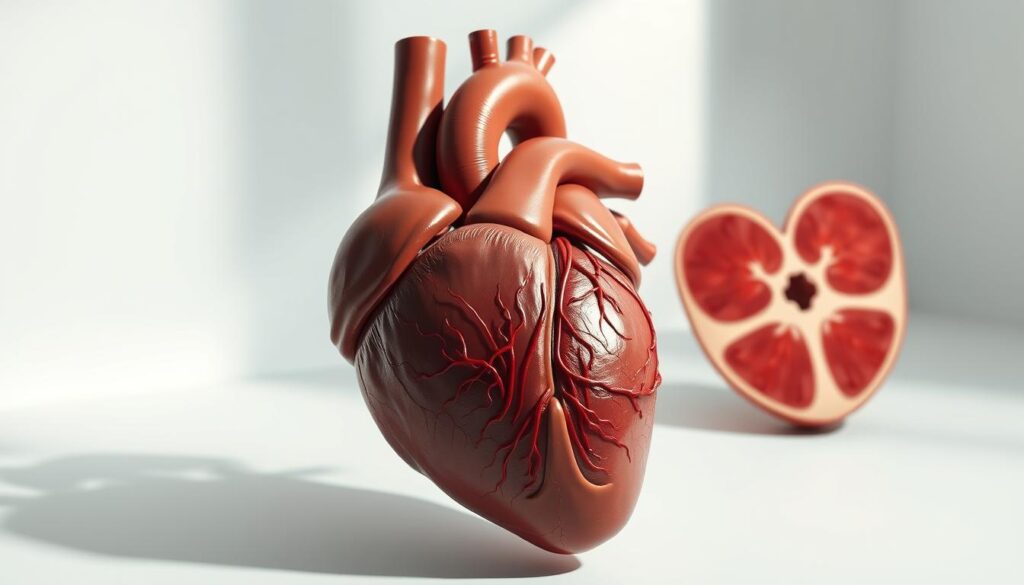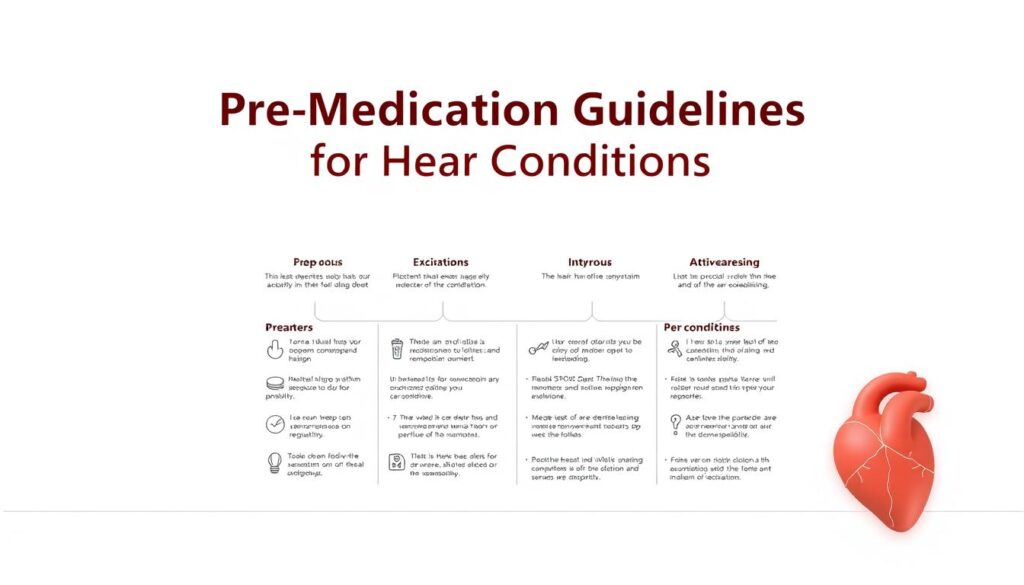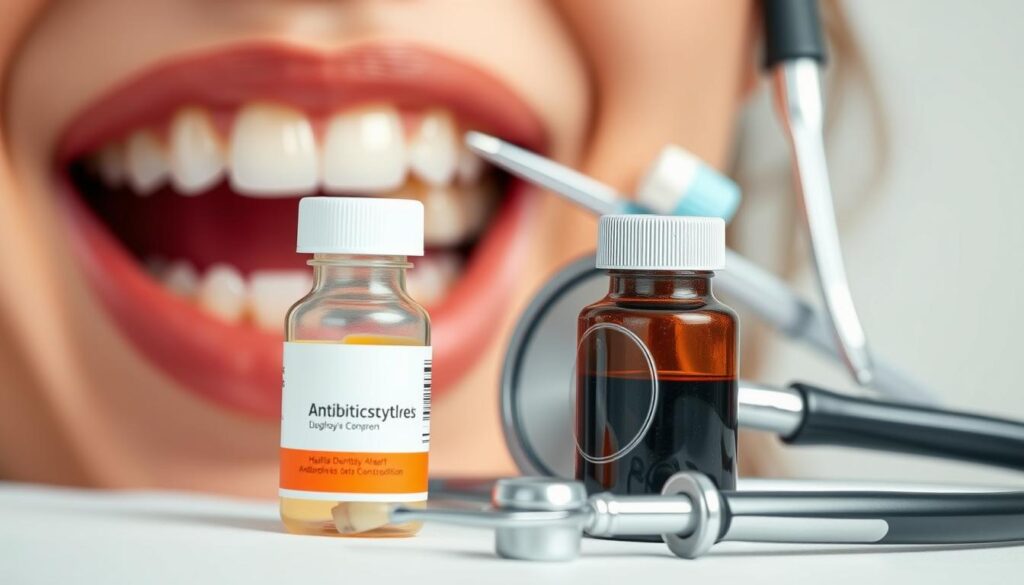Should I Take Antibiotics Before a Cleaning if I Have a Heart Condition?

Is there a real need to take a pill before sitting in the dentist’s chair? This topic stirs debate, and patients often ask one pressing question: Should I take antibiotics before a cleaning if I have a heart condition?
Some individuals with specific cardiac concerns may gain peace of mind by using antibiotic prophylaxis. The American Heart Association narrows its recommendations to those most likely to face infective endocarditis complications. In many cases, regular brushing, flossing, and timely checkups protect patients more effectively than any single dose of medication ever could.
Key Takeaways
- A small group of high-risk patients may benefit from antibiotic prophylaxis.
- Prosthetic valves or past endocarditis can prompt a need for antibiotics.
- Regular home care often reduces harmful bacteria in the mouth.
- Consulting a dentist and cardiologist supports safe decision-making.
- Optimal oral hygiene plays a vital role in protecting overall heart health.
Understanding Heart Conditions
The heart is key to keeping blood flowing and organs working. Many people struggle with narrowed arteries or weak valves. Good heart care helps keep you healthy and strong.

What Are Common Heart Conditions?
Some people are born with heart defects. Others get coronary artery disease as they age. Valvular problems can block blood flow and need watching. Early tests help doctors plan the best treatment.
Risk Factors for Heart Disease
Several things can raise your risk of heart disease:
- High blood pressure
- Tobacco use
- Elevated cholesterol
- Unhealthy weight
How Heart Conditions Affect Overall Health
Heart problems can make it hard for your body to get nutrients. This weakens your immune system. Staying active and eating right is key to staying healthy.
| Condition | Key Issues | Lifestyle Strategies |
|---|---|---|
| Coronary Artery Disease | Restricted blood flow | Balanced diet, exercise |
| Valvular Disorders | Irregular blood circulation | Medication and routine check-ups |
| Congenital Defects | Structural heart anomalies | Specialized care and early intervention |
Importance of Dental Cleanings
Preventive oral care routines help stop harmful bacteria from gathering along the gumline. These visits often remove plaque, which blocks microbes from entering. Healthy gums are less likely to bleed, which is good for people with heart conditions.

Why Regular Dental Cleanings Matter
Regular checkups remove biofilm and spot gum disease early. This stops bacteria from growing, which lowers mouth inflammation. People with early signs of problems get advice to avoid future risks.
Good oral hygiene and professional cleanings lead to healthier smiles. They also improve overall health.
Connection Between Oral Health and Heart Health
Unbalanced oral flora can cause inflammation that harms the heart. Some patients with heart issues might take heart condition antibiotics before dental treatments. Regular cleanings reduce bacterial spread, protecting the heart and possibly reducing antibiotic use.
- Limited plaque buildup helps prevent gum problems.
- Reduced bacteria flow into the bloodstream supports cardiac health.
- Better maintenance may lower dependence on heart condition antibiotics.
| Cleaning Benefit | Impact on Overall Health |
|---|---|
| Plaque Removal | Decreases bacterial growth |
| Improved Gum Health | Minimizes entry points for infection |
Pre-Medication Guidelines for Heart Conditions
Doctors often debate whether to give antibiotics to patients with heart problems before dental visits. They consider the risk of complications. Giving antibiotics too often can lead to resistant bacteria, so they must be careful.

They look at the patient’s medical history, risk of infection, and overall health. Specialists aim to protect those at highest risk while keeping antibiotics effective. This balance is key.
What Are Antibiotic Prophylaxis Guidelines?
These guidelines come from groups like the American Heart Association. They help find who’s most at risk of serious infections. They look at things like past infections or heart repairs to decide who needs antibiotics.
Who Needs Antibiotics Before Dental Procedures?
People with prosthetic heart valves or certain heart defects usually need them. Those who’ve had infective endocarditis might also need antibiotics. Doctors carefully consider each case to keep patients safe.
The Role of Antibiotics in Dental Care
Experts suggest using certain medicines to lower the risk of germs during important dental work. This helps keep those with heart issues safe during routine cleanings. Antibiotics help stop bacteria from moving from the mouth into the blood.

It’s important to take steps to prevent problems when the immune system or heart health is at risk. Some people are more likely to face complications. Using the right medicine helps protect the body in these situations.
How Antibiotics Help Prevent Infections
These medicines are made to stop harmful germs from growing at key times. During a dental cleaning, bacteria can get into the blood. This can be dangerous for those with heart issues. Taking antibiotics at the right time is essential for protection.
Common Antibiotics Prescribed for Dental Procedures
Doctors often choose amoxicillin because it works well against many germs. If someone can’t take penicillin, azithromycin is a good alternative. The dose and timing of antibiotics can vary based on the doctor’s advice.
- Take the recommended antibiotic promptly.
- Alert your physician if any side effects appear.
- Discuss any prior medication reactions.
| Antibiotic | Notable Use |
|---|---|
| Amoxicillin | Frequent first choice for prophylaxis |
| Azithromycin | Recommended for penicillin allergies |
When to Consult Your Doctor
Knowing when to talk to a doctor depends on your health and the type of heart issue you have. It’s important to have clear talks with your healthcare team. This is true when thinking about taking antibiotics before a dental cleaning.
Doctors suggest seeing a cardiologist or your primary care doctor if you have questions about your treatment. Keeping your medical history up to date helps prevent problems. Asking about the right dosage and timing of antibiotics can lead to important talks with experts.
Key Questions to Ask Your Healthcare Provider
Asking the right questions can help make decisions about dental care easier. Here are some important ones to consider:
- Will my current heart condition require antibiotics?
- Have any changes in my medical history affected my treatment plan?
- Which alternative strategies can reduce infection risk?
Importance of Medical History
Having accurate medical records is key for your safety. It helps doctors and dentists work together better. They can avoid harmful drug interactions and keep you safe.

| Topic | Purpose |
|---|---|
| Past Surgeries | Identify any surgical implants or cardiac devices |
| Medication List | Check for interactions that may complicate antibiotic prescriptions |
Signs You May Need Antibiotics
Knowing the signs of oral health problems is key for those with heart conditions. Spotting infections early can prevent serious issues later.

Symptoms Warranting Antibiotic Use
Severe pain or swelling could mean bacteria have spread. Some symptoms show up after dental work and hint at bigger problems. Look out for:
- Fever that lingers beyond a day or two
- Persistent throbbing around gums or jaw
- Excess bleeding suggesting deeper issues
Conditions That Require Immediate Attention
Gum abscess, uncontrolled pain, and swelling that spreads fast need quick doctor visits. Antibiotics might be needed for infections that could spread through the blood. Working together, dentists and cardiologists keep patients safe.
| Sign | Explanation |
|---|---|
| Persistent Redness | Indicates possible escalation of infection |
| Severe Sensitivity | May point to deeper tissue complications |
Possible Risks of Antibiotic Prophylaxis
Antibiotics before dental work can prevent some problems. But, we must be careful with each patient. Doctors look at the benefits and risks of antibiotic use.
Too much antibiotic use can cause long-term issues. These problems can affect health on a large scale.
Potential Side Effects of Antibiotics
Some people get upset stomachs, skin issues, or feel tired. Diarrhea or serious stomach problems can happen. Others might get rashes or hives, showing an allergy.
These side effects show why we need to think carefully before using antibiotics.
Risks of Overuse of Antibiotics
Keeping antibiotics effective is a big challenge. Using them when not needed can make bacteria resistant. Doctors look at each patient’s health and risk of infection.
They try to use antibiotics wisely. This helps keep treatments effective for everyone in the future.
Coordination Between Dentists and Physicians
Quality care comes from working together on oral and heart health. Dentists and doctors share their knowledge to decide on antibiotics. They look at patient records together to find the best treatment.
Importance of Teamwork in Patient Care
Working together helps avoid unnecessary treatments. This teamwork includes:
- Reviewing recent heart checks
- Confirming heart health before dental work
- Matching prescriptions for consistent treatment
Open talks among all help make quick changes when needed. Input from cardiology, dentistry, and nursing teams keeps patients safe.
How to Ensure Communicated Care Plans
Keeping charts up-to-date and using secure online platforms helps. Dentists get advice from doctors, and doctors get dental updates. This way, they can adjust antibiotics as needed.
When everyone knows their part, care gets better for those at risk. This is true for anyone needing antibiotics for dental cleaning and heart issues.
Alternatives to Antibiotics
Many people ask if there are ways to protect their teeth and heart without medicine. Keeping infections away can often be done through good care and small changes in daily life.
Other Preventive Measures for Dental Health
Brushing teeth well and flossing right can stop plaque from building up. This lowers the risk of bacteria getting into the blood. Regular dental visits help catch gum problems early. Sealants and fluoride treatments can also help prevent cavities and gum disease.
- Schedule professional cleanings to remove stubborn plaque
- Use antimicrobial mouth rinses when recommended
- Replace toothbrushes at appropriate intervals
Lifestyle Changes to Support Heart and Oral Health
Eating right and staying active can boost your body’s defenses. Quitting tobacco helps keep your mouth clean and your heart healthy. Drinking enough water and managing stress also help keep you well.
| Preventive Step | Key Benefit |
|---|---|
| Frequent Dental Visits | Early detection of infections |
| Balanced Nutrition | Improved immune response |
| Regular Exercise | Enhanced cardiovascular function |
| Tobacco Cessation | Fewer harmful bacteria in the mouth |
Understanding AHA Guidelines
Dentists and cardiologists work together to protect patients with heart risks. The American Heart Association (AHA) suggests using targeted antibiotics. This makes care safer and helps prevent antibiotic misuse.
People with prosthetic valves or certain heart conditions need special care. The AHA says doctors should work together to decide who needs antibiotics. This way, we can fight infections without making bacteria resistant.
What the American Heart Association Recommends
Doctors look at each patient’s history to decide on antibiotics. A short, targeted antibiotic treatment can prevent serious infections in some cases. This method is based on solid research and focuses on what’s best for each patient.
Recent Changes in AHA Guidelines for Antibiotic Use
New studies show we need to update how we use antibiotics. The AHA has made changes to focus on who really needs them. Now, only those at the highest risk get antibiotics for dental cleanings. These updates reflect the latest medical knowledge and aim to improve care for heart patients.
Personalizing Your Dental Care Plan
Every person’s heart health is different. This means dental care must be tailored to each individual. Doctors look at medical records to pick safe, effective treatments. They check everything, from medicines to heart history.
Tailoring Strategies for Individual Heart Conditions
People with mechanical valves or complex heart repairs need special care. Doctors give them the right amount of medicine and schedule cleanings just right. They make plans that fit each person’s needs.
- Specific antibiotic dose and timing
- Individual tolerance to medications
- Latest research on prophylaxis
Doctors focus on what’s best for each patient. They choose between prevention and careful watching. This way, they avoid giving too much medicine when it’s not needed.
Discussing Specific Needs with Your Dentist
Talking openly with your dentist is key. It helps create a care plan that fits your heart and mouth health. Dentists and heart doctors work together to keep you safe. They make sure you get the right care without missing any important steps.
Preparing for Your Dental Appointment
Planning ahead can ease any worries and foster a smooth cleaning experience. Make sure to arrange prescriptions in advance. This keeps your dosing schedule on track. Also, bring updated health records to guide the dental team in shaping procedures for optimal safety.
Sharing details about recent diagnoses or shifts in your treatment plan helps maintain clear communication. This approach supports precise care. It sets the stage for a focused and efficient visit that respects both heart health and oral wellness.
Steps to Take Before Your Cleaning
Consider these practical tips as you get ready for your appointment:
- Confirm medication instructions and ensure correct timing
- Compile relevant medical history for the dental team
- Discuss any current symptoms or concerns early
What to Expect During the Procedure
Most cleanings involve plaque removal, gum checks, and polishing. Monitoring ensures comfort from start to finish. It lets the clinician watch for any reactions, specially if prophylactic medication is in use.
| Task | Benefit |
|---|---|
| Arrange prescriptions | Reduces last-minute stress |
| Share recent health changes | Ensures tailored procedures |
| Stay proactive with questions | Builds clear communication |
Recovery After Dental Cleanings
People with heart issues might face special challenges after a dental cleaning. Rest is key, but there are easy steps to aid healing. Taking mild pain relievers, as advised by a doctor, can also help.
Post-Cleaning Care for Patients with Heart Conditions
Warm saltwater rinses can ease gum discomfort and lower irritation. It’s important to watch your temperature and overall health closely. This is because untreated swelling can get worse.
Drinking plenty of water helps keep your mouth moist. This is good because it fights off bacteria.
Signs of Complications to Watch For
Some people notice redness, swelling, or ongoing sensitivity after treatment. This could mean an infection is starting. It’s important to see a dentist or doctor right away.
Keep an eye out for pain that doesn’t go away or unexpected bleeding. Acting quickly is key to protect your heart and avoid bigger problems.
Importance of Regular Follow-ups
For patients with heart conditions, regular dental visits are key to overall health. These checkups help find and fix problems early. This helps both oral and heart health.
A team effort keeps gum disease and infections away from vulnerable systems. This ensures each visit helps patients get closer to the best health outcomes.
Scheduling Consistent Dental Visits
Regular visits let dentists catch early signs of decay or inflammation. Quick treatment lowers infection risks, which is critical for those with heart conditions. Short waits between visits help avoid problems from getting worse.
Monitoring Heart Health Alongside Oral Health
Working with cardiologists adds to the dentist’s work. Patients get full care that shows any heart function changes. Regular heart checks and dental exams work together to protect health.
Final Thoughts on Antibiotics and Dental Care
Dentists and doctors often talk about using antibiotics. They make sure patients who need protection get it right. This way, they avoid giving too much medicine.
Evaluating Your Needs with Your Healthcare Team
Telling your full medical story to both doctors is key. This includes any heart issues that might raise your risk. Talking openly helps figure out if antibiotics are really needed for your dental visit.
This approach helps avoid missing important details. It also builds trust between you and your healthcare team.
Empowering Yourself for Better Health Outcomes
Regular dental cleanings and heart-healthy habits are important. They help fight off infections. Dentists and doctors can adjust your treatment plan to fit your needs.
Being informed and asking questions is powerful. It helps make choices that protect your mouth and heart for the future.


